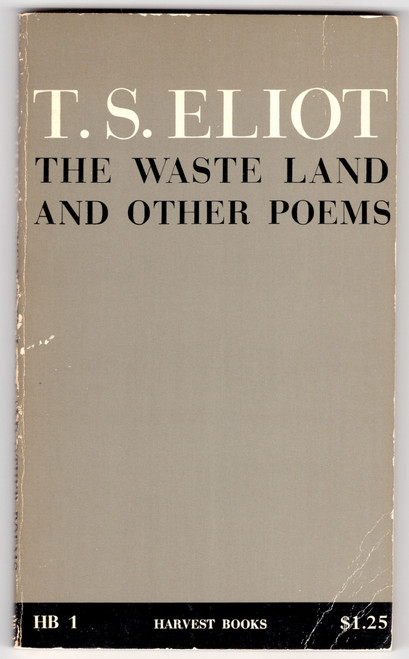The Waste Land and Other Poems is a landmark collection of modernist poetry by T.S. Eliot, published by Harvest Books. The collection's centerpiece, "The Waste Land," profoundly explores post-World War I disillusionment, blending myth, religion, and contemporary despair into a fragmented narrative. Other significant works include "Ash-Wednesday," which addresses spiritual struggle and renewal, and "Journey of the Magi," reflecting on the transformative journey of the biblical Magi. "Marina" employs maritime imagery to reflect on themes of memory and loss. "The Love Song of J. Alfred Prufrock" portrays the internal monologue of a modern man filled with doubt and indecision. "Preludes" offers a series of urban scenes depicting the grime and spiritual emptiness of modern life, while "Gerontion" presents the musings of an old man contemplating history and his own life. "Sweeney Among the Nightingales" combines classical references with modern sensibilities, and the "Landscapes" series captures vivid natural scenes. The collection also features two choruses from Eliot's play "The Rock," touching on themes of faith and human endeavor.
Editorial Reviews
"Eliot's masterful use of allusion and innovative poetic techniques in 'The Waste Land' revolutionized 20th-century poetry." —The New York Times
"A collection that captures the depth of spiritual crisis and the quest for meaning in a fragmented world." —The Guardian
About the Author
Thomas Stearns Eliot, known as T.S. Eliot, was a pivotal figure in modernist literature. Born in St. Louis, Missouri, in 1888, Eliot moved to England in 1914 and later became a British citizen. He is renowned for his innovative and influential poetry, which often addresses themes of existential despair, spirituality, and the search for meaning in the modern world. His major works, including The Waste Land, The Love Song of J. Alfred Prufrock, and Four Quartets, showcase his mastery of language and form, as well as his profound engagement with literary and philosophical traditions. Eliot's contributions to literature were recognized with the Nobel Prize in Literature in 1948.








